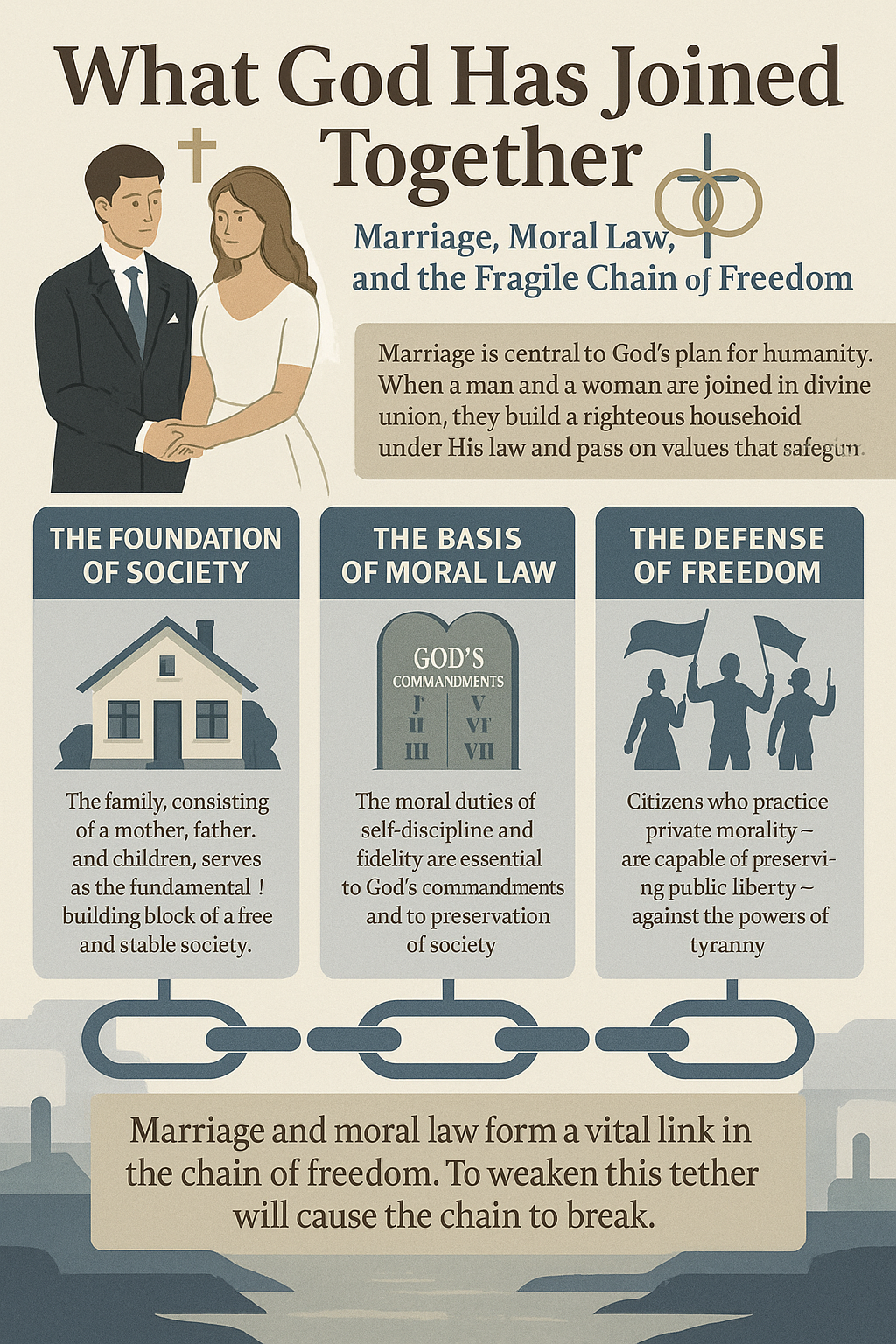Christ’s Standard vs. Moses’ Concession
In Matthew 19:3-9 and Mark 10:2-9, Jesus radically re-centers the discussion of divorce away from legal technicalities and toward God’s original moral intention. While Moses allowed divorce due to the “hardness of your hearts,” Jesus reminds His audience that “from the beginning it was not so.” The divine ideal is that marriage is a permanent covenant, not a contractual arrangement based on personal preference.
Jesus’ declaration—“Whoever divorces his wife, except for sexual immorality, and marries another commits adultery”—was revolutionary. He effectively declared most legal divorces invalid in God’s eyes, even if they were permitted by civil law.
Irreconcilable Differences: A Humanistic Excuse
In modern legal systems, “irreconcilable differences” has replaced “covenant” as the cultural norm. This legal loophole undermines the sacredness of marriage. It enables people to sever their vows not for causes God sanctions (like infidelity), but for convenience or emotional discontent. This reflects a broader cultural shift: from God-centered morality to self-centered justification.
Such reasoning not only disrespects the sanctity of marriage, but also reflects the deeper condition Jesus spoke of—the hardness of hearts.
Divorced and Remarried: A Sobering Warning
Jesus’ words in Luke 16:18, Matthew 5:32, and Mark 10:11-12 leave little ambiguity. Those who divorce and remarry without legitimate cause “commit adultery.” Paul reinforces this in Romans 7:2-3. These are not optional teachings—they are moral absolutes.
This challenges today’s churches and believers. Many assume the grace of God absolves unrepentant remarriage—but Scripture warns otherwise: “Do not be deceived…neither the sexually immoral…nor adulterers…will inherit the kingdom of God” (1 Corinthians 6:9-10). If someone divorces for reasons not permitted by God and remarries, they are living in adultery—not simply committing a sin, but remaining in a sinful state unless repented of.
4. The Rise of Legalized Plunder and Moral Relativism
This rejection of divine standards is not confined to marriage—it reflects a society-wide moral collapse. In The Law, Frédéric Bastiat warns of legalized plunder, where laws no longer protect virtue but institutionalize vice. When law permits what God condemns—like adultery through wrongful divorce and remarriage—it erodes both moral order and civic stability.
A nation that normalizes rebellion against divine order becomes easy prey for tyranny. Marriage and family form the bedrock of moral civilization. When they collapse, so does liberty.
5. The Fragile Chain of Freedom: From Virtue to Bondage
Freedom is not sustained by force, but by virtue. As Stephen Covey observed, “We must govern ourselves, or we must be governed.” Lawrence Kohlberg’s stages of moral development show that societies move from principled moral reasoning to compliance with authority and eventually to chaos if integrity is not cultivated.
The progression often looks like this:
- Spiritual Fidelity → Moral Clarity → Marital Stability → Civic Freedom
- Spiritual Rebellion → Moral Relativism → Family Breakdown → Societal Bondage
When individuals prioritize emotion, consumerism, and self over God, they become what Gileadi and the Arbinger Institute warn about: blinded by idols, detached from principles, and increasingly unable to discern right from wrong.
6. The “Non-Believing Spouse” and Cultural Apostasy
Paul’s teaching in 1 Corinthians 7 offers clarity: if an unbelieving spouse departs, the believer is “not under bondage.” But this is vastly different than divorcing a believing spouse to marry someone else or to pursue personal happiness. The early church knew the difference between abandonment and rebellion against God’s covenant order.
Today, many use this teaching to justify a lifestyle Christ condemned. This rationalization contributes to the slow, deliberate apostasy of a culture that once honored divine truth.
Conclusion: Choose the Narrow Path
The teachings of Christ and the apostles are not suggestions—they are radical counter-cultural declarations. Those who heed them are often marginalized, just as Christ and Paul were. But faithfulness requires obedience, even when inconvenient.
If we want to restore liberty, we must begin by restoring virtue. That means honoring God’s design for marriage, family, and society—no matter what the courts say. The cost of disobedience isn’t just broken homes; it’s broken civilizations.





